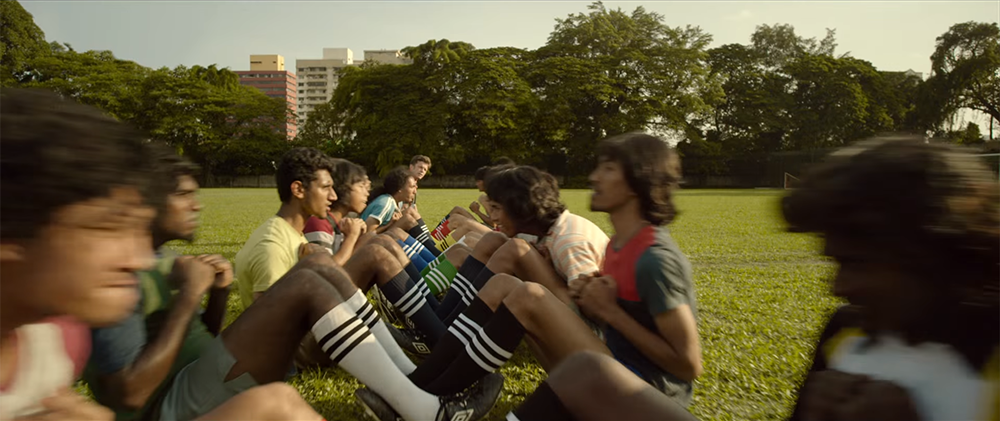 Sabahan footballers from the 1980 team say ‘Ola Bola’ helps bring Malaysians closer together. – Pic courtesy of Astro Shaw, February 18, 2016.Unity of Malaysians of all communities can yield tremendous success – that's the message of the “Ola Bola” film now getting packed audiences in cinemas nationwide, according to two national football heroes of the 1980s.
Sabahan footballers from the 1980 team say ‘Ola Bola’ helps bring Malaysians closer together. – Pic courtesy of Astro Shaw, February 18, 2016.Unity of Malaysians of all communities can yield tremendous success – that's the message of the “Ola Bola” film now getting packed audiences in cinemas nationwide, according to two national football heroes of the 1980s.
Sabahans Datuk Hassan Sani and James Wong, both of whom were in the national team when they qualified for the Olympic Games in Moscow in 1980, felt that the film helped to bring Malaysians closer together.
Hassan said the film portrayed the Malaysian football team of that time, represented by all communities – Malay Chinese and Indian as well as the ethnic groups of Sabah.
“The story line (of the film) is good. Our football players at that time were from all the communities. It is almost similar to what we had gone through, like how we trained and went to the Merdeka Stadium in a helicopter,” he said.
Hassan said the spirit of togetherness and teamwork of that team should be revived.
Unfortunately, the present national squad does not have players from all the communities, he said, adding he wondered why people from some communities were no longer keen to play football as in the past.
Hassan said that though the film was about Malaysia's qualification for the Olympics in 1980, some of the facts had been changed, like the goal by Malaysia when the team defeated South Korea during the qualifying round.
The score was 2-1, but in the film it was 3-2, he added.
He said the player who scored the goal then had worn the jersey bearing the number 9 and not 10 as in the film.
The winning goal of the match was scored by James Wong who received a pass from Hassan in the South Korean penalty box.
Wong attributed the team's success then to the spirit of the players who were more like a family that together wanted to bring glory to the country.
“In those days, there were no professional players like we have today. All of us played for the country. We were focused on victory. I feel that in any endeavour at all, including sports, if we have the right mindset, we can certainly achieve success,” he said.
On the inaccuracy of facts in the film, Wong said the facts of the national team's success in qualifying for the Moscow Olympics should have been retained or the people, especially the young generation, would be confused.
Movie-goer Dave Chen, 44, said he watched the film and found that it portrayed the spirit of teamwork and close relations among players without any racist issues.
“This film is a reminder to Malaysia that racial integration is the key to prosperity,” he said.
Communications technology executive Donald Kadau said it was an interesting film.
“It portrays the close relations among football players then, their spirit of togetherness even when they went to a fun fair,” he said. – Bernama, February 18, 2016.

Comments
Please refrain from nicknames or comments of a racist, sexist, personal, vulgar or derogatory nature, or you may risk being blocked from commenting in our website. We encourage commenters to use their real names as their username. As comments are moderated, they may not appear immediately or even on the same day you posted them. We also reserve the right to delete off-topic comments